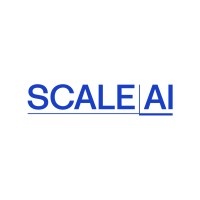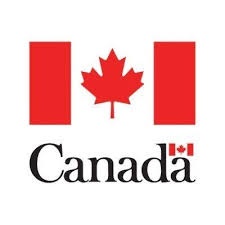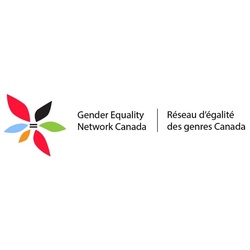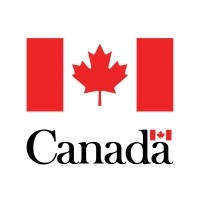
Open
Genome Prairie — Precision Health Initiative
Last Update: October 27, 2025
Canada
Genomic precision health initiative for personalized Canadian healthcare
Grant and Funding
At a glance
Funding available
Financing goals
Integrate new technologies
Research and experimental development
Conduct research
See more
Eligible Funding
- Maximum amount : 6 $
- Up to 45% of project cost
Timeline
- Open Date : October 1, 2024
- Closing date : June 30, 2029
Eligible candidates
Eligible Industries
- Health care and social assistance
Location
- Canada
Legal structures
- Non-profit
- Public or Parapublic institution
- For-profit business
Annual revenue
- All revenue ranges
Organisation size
- All organization sizes
Audience
- Indigenous Peoples
- Persons with Disabilities
- Other Racialized Persons
- Rural or Northern Residents
- Canadians
Non-profit candidates
Sector of operation
- Higher Education
- Research
- Hospitals and Rehabilitation
- Other Health Services
- Economic, Social and Community Development
- Diversity and Inclusion
Target groups
- General public
- Indigenous peoples
- People with disabilities
- Women & girls
- LGBTQ+ community
- Rural / Remote communities
- Academia / students
- Low-income individuals / families
- Minority groups
Revenue structures
- All structures
Scope
- Regional
- Provincial
- National
- International
Overview
The Canadian Precision Health Initiative offers a funding opportunity of up to $6 million per project from Genome Canada to generate a large-scale, population-level genomic data asset reflecting Canada's diverse demographic. The program supports whole-genome sequencing and aims to advance genomics research and innovation to enhance precision health and healthcare outcomes for all Canadians.
Activities funded
The Genome Prairie — Precision Health Initiative supports projects that aim to advance precision health through genomics in Canada. Eligible activities involve sequencing genomes from a diverse Canadian population and fostering collaboration in genomic research.
- Sequencing at least 100,000 genomes to create a national genomic data asset.
- Developing and implementing standardized protocols for genomic data collection and analysis.
- Creating a trusted research environment for the use and sharing of genomic data.
- Advancing genomics tools and AI applications to improve disease diagnosis and therapy.
- Ensuring interoperability of genomic data across Canadian healthcare systems.
- Collaborating with health authorities to integrate genomic solutions into clinical settings.
- Promoting public engagement to enhance understanding and acceptance of genomics.
Eligibility
- The applicant must submit a Letter of Intent (LOI) and, if invited, a full proposal through Genome Canada’s Proposal Central Portal, typically via a regional Genome Centre.
- The project must generate a minimum of 2,000 genomes, except in justified cases where a smaller number is warranted and approved.
- Whole-genome sequencing must be completed by a Genome Canada–approved sequencing centre.
- The project must include self-identified race, ethnicity, and ancestry data in their dataset and document methodologies for data collection and analysis.
- Research Ethics Board approval must be obtained and provided to Genome Canada before sharing biological samples for sequencing.
Who is eligible?
- Academic research institutions
- Biotechnology companies
- Healthcare sector organizations
- Innovation and research consortia
Who is not eligible
- Projects unable to obtain and include participant consent for whole-genome sequencing and data sharing.
- Projects that cannot ensure all samples are collected from within Canada.
- Projects unable to provide required clinical data or meet data governance standards as outlined by the program.
Eligible expenses
- Costs for generating short-read genome sequencing data through Genome Canada–approved sequencing centres.
- Expenses for generating long-read whole genome sequencing data using Oxford Nanopore Technologies or PacBio Technology (for projects already funded for short-read sequencing).
- Expenses associated with collecting, processing, analyzing, and managing biological samples and their associated genomic and clinical data.
- Costs related to obtaining and maintaining necessary approvals from Research Ethics Boards.
- Data storage and deposition expenses required for submitting genome sequence data and metadata to the national databank (Pan-Canadian Genome Library).
- Personnel costs directly related to managing and executing the project, including roles in data and metadata deposition, project management, and coordination.
- Expenses for reporting, financial reconciliation, and compliance with funding requirements.
Eligible geographic areas
- Projects must collect samples originating from within Canada.
- Applicants are required to apply through a regional Genome Centre in Canada.
Selection criteria
- Degree to which the population cohort reflects the diversity of the Canadian population.
- Potential of the national databank to advance precision health and address regional health needs.
- Contribution to the creation of a large, diverse genomic dataset, including disease-specific and under-represented groups.
- Potential for advancing the utility of genomic data for industry and stakeholders, enhancing research impact through follow-up activities.
- Inclusion of partners and teams that demonstrate commitment to inclusion, diversity, equity, and accessibility (IDEA), as well as engagement with Indigenous communities.
How to apply
1
Prepare Letter of Intent (LOI)
- Review "Eligibility criteria and portfolio considerations" section to understand requirements for LOI.
- Prepare a brief LOI summarizing the project plan, expected deliverables, and number of genomes to be sequenced annually.
- Explain how the genomic data will represent Canada's diversity and address population-level gaps.
- Describe potential clinical impacts and benefits to Canada's health-care system.
- Ensure the project meets or will meet the criteria for population-level genomic data generation.
- Submit a summary of the budget and co-funding plan.
2
Submit LOI
- Access Genome Canada's Proposal Central Portal via a regional Genome Centre.
- Send in the completed LOI by the deadline of November 01, 2024.
3
Await Eligibility Check and LOI Results
- Genome Canada completes eligibility check and initial GRC selection based on portfolio considerations during the week of November 04, 2024.
- Receive notification of LOI results from Genome Canada by November 15, 2024.
- Successful LOI applicants are invited to submit a full proposal.
4
Prepare Full Proposal
- Prepare a full proposal if invited, addressing the evaluation criteria for individual projects as stated.
- Include detailed technical information and plans as per guidelines.
5
Submit Full Proposal
Submit the full proposal by the first deadline of December 16, 2024, or the second deadline of March 15, 2025, if invited.
6
Technical Review and Final Submission
- Independent experts conduct technical reviews in January 2025.
- GRC completes a portfolio review based on proposal submissions by mid-January 2025.
- Genome Canada communicates funding decisions by the end of January 2025.
Additional information
- Successful projects must have human and financial resources allocated for effective project management and coordination.
- Each funded project must designate an individual responsible for depositing data and metadata into the national databank and for follow-up activities.
- Projects are required to submit regular progress reports and a final report upon completion.
- No-cost extensions for projects will not be considered; deadlines must be strictly adhered to.
Contacts
(306) 668-3570
Canada
Apply to this program
Frequently Asked Questions about the Genome Prairie — Precision Health Initiative Program
Here are answers to the most common questions about the Genome Prairie — Precision Health Initiative. This section explains what the program is, how much funding is available, eligibility requirements, application deadlines, and other important details to help you determine if this grant is right for your business.
What is the Genome Prairie — Precision Health Initiative?
How much funding can be received?
What is the deadline to apply?
Who is eligible for the Genome Prairie — Precision Health Initiative program?
What expenses are eligible under Genome Prairie — Precision Health Initiative?
Who can I contact for more information about the Genome Prairie — Precision Health Initiative?
Where is the Genome Prairie — Precision Health Initiative available?
Apply to this program
More programs like this

Grant and FundingOpen
AI-Powered Supply Chains Cluster (Scale AI)
Global Innovation Clusters (GIC)Funding to enhance supply chains with AI

Researchers And FacilitiesPartnering and CollaborationWage Subsidies And InternsOpen
Mitacs Accelerate
MitacsConnect organizations with academia for research and innovation collaboration

Grant and FundingClosed
Canada Service Corps – Service Placements Regional Stream
Employment and Social Development Canada (ESDC)Funding for organizations to develop youth volunteer service placements

Grant and FundingClosed
ISED — Artificial intelligence (AI)
Innovation, Science and Economic Development Canada (ISED)Supports testing innovative AI prototypes for Canadian government needs

Grant and FundingOpen
Active Transportation Fund
Housing, Infrastructure and Communities CanadaSupports infrastructure projects for safer, more accessible active transportation

Partnering and CollaborationGrant and Fundingarchived
Equality for Sex, Sexual Orientation, Gender Identity and Expression Program
Women and Gender Equality Canada (WAGE)Supports equality initiatives for sex, sexual orientation, and gender identity

Grant and FundingClosed
Crime Prevention Action Fund (CPAF)
Public Safety Canada (PSC)Supports evidence-based crime prevention initiatives for at-risk communities

Grant and FundingClosed
Substance Use and Addictions Program (SUAP)
Health CanadaSupports innovative projects addressing substance use prevention and treatment

Grant and FundingOpen
Humanitarian Workforce (HWF) - COVID-19 and other large-scale emergencies
Public Safety Canada (PSC)Supports NGOs in emergency response and capacity building activities

Grant and FundingClosed
Age Well at Home (AWAH) - In-Home Support Pilot Project Stream
Employment and Social Development Canada (ESDC)Supports volunteer-based home services for vulnerable Canadian seniors
Sign up to our platform to access the Genome Prairie — Precision Health Initiative information sheet for free
Get access to 4,000+ programs, practical guides, personalized alerts, and an AI assistant to support your grant applications.